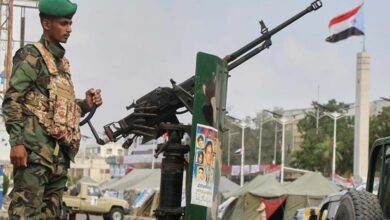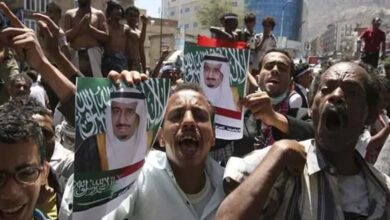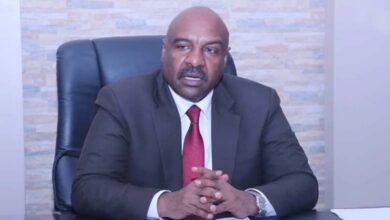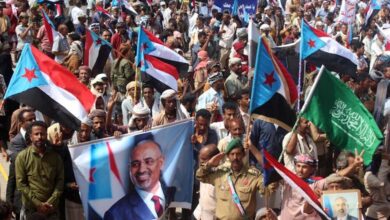Experts Warn: Constitutional Amendments Lack Legitimacy and Risk Sudan’s Division
Power Distribution Between the Sudanese Army and Loyalists
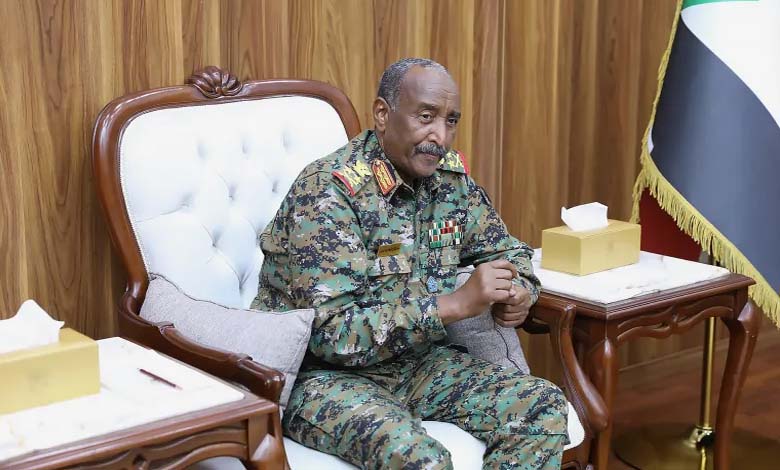
Noureddine Babiker, the official spokesperson for the Sudanese Congress Party, has warned of the dangers posed by the amendments made by the “Port Sudan Government” to the constitutional document. He pointed out that these amendments are closely linked to the ongoing events in Nairobi, raising concerns about the possibility of Sudan being divided into multiple entities, which could further exacerbate the country’s political and economic crisis.
-
Addis Ababa Conference on Humanitarian Support for Sudan, Backed by UAE, Ethiopia & AU
-
From the Heart of the War in Sudan: Harrowing Testimonies of Women Subjected to Sexual Violence by the Army
During a joint meeting of the Sovereignty Council and the Council of Ministers held on Wednesday, the amendments to the constitutional document were approved. However, the details of these changes have not yet been disclosed, raising questions about the government’s intentions and the potential impact of these modifications on Sudan’s future.
Noureddine Babiker stressed that the Sudanese people’s priorities at this stage are not about forming a government based on power-sharing and wealth distribution. Instead, the focus should be on ending the armed conflict and alleviating the suffering of citizens. He explained that the main concern for Sudanese people is to protect their lives, facilitate the return of displaced persons and refugees—both inside and outside the country—and ensure that humanitarian aid reaches those in need.
-
Sexual Violence in the Sudan War: Harrowing Testimonies from Survivors Reveal the Horrors of Violations
-
Sudan War: Multiple Scenarios Shaped by Tactical Shifts
He viewed these amendments as an attempt to legitimize the Port Sudan Government and satisfy the rival factions vying for power. He warned that this move carries significant risks, especially given its connection to the ongoing meetings in Nairobi, which aim to establish a parallel government to compete with the legitimate government in Port Sudan.
Currently, meetings are being held in Nairobi between various political, military, and civilian forces, including the Rapid Support Forces (RSF), the Sudan People’s Liberation Movement-North (SPLM-N led by Al-Hilu), and the Revolutionary Front. Noureddine Babiker emphasized that these developments could damage Sudan’s future and may lead to the country’s fragmentation.
-
Sudan War: Is a Decisive Battle Approaching?
-
Sudanese Army’s Military Gains Undermine Chances of a Peaceful Resolution to the Crisis
He cautioned that this step might result in the emergence of two rival states, urging all parties to act rationally and focus on the fundamental issue of ending the war and delivering humanitarian aid. He pointed out that Sudanese citizens are not interested in the ongoing attempts to consolidate military control over governance.
Noureddine Babiker also revealed that all leaked materials from the constitutional document indicate a complete military takeover of power and the militarization of both political and civil life in Sudan, posing a grave threat to the country’s future.
-
The Sudanese Army and the Use of Chemical Weapons: Recent War Violations and Humanitarian Impact
-
Sudanese Army Violations Against Civilians: War Crimes Threatening the Country’s Future
The amendments to the constitutional document include increasing the number of military representatives in the Sovereignty Council from four to six members and granting the army leaders the authority to appoint the head of the Sovereignty Council. Additionally, references to the “Forces of Freedom and Change” and the “Rapid Support Forces” have been removed.
He also noted that these changes reflect a disregard for the humanitarian crisis affecting millions of Sudanese both inside and outside the country.
-
The Sudanese Army’s Reliance on Mercenaries and Foreign Forces: The Collapse of Local Military Capabilities
-
Juba Opens Fire on the Sudanese Army and Its Islamist Militias… Details
Legal Expert: Amendments Are Illegal and Invalid
Legal expert Moiz Hadra stated that the amendments approved on Wednesday are unconstitutional and void, as they lack legitimacy.
In an interview with Radio Dabanga, he explained that the constitutional document has been defunct since the October 25 coup. He further noted that the main stakeholders of the constitutional document—the Forces of Freedom and Change and the military component—no longer exist, and the legislative council is no longer functioning.
-
Tensions between Khartoum and Juba Following Calls for International Intervention in Sudan
-
The Army and the Muslim Brotherhood Loot Sudanese Properties in Omdurman and Wad Madani
He described the amendments as meaningless since they are based on a non-existent foundation. He also deemed the entire process unconstitutional, arguing that debating the details of the amendments is futile because the framework upon which they were made is fundamentally flawed.
Leaked information has revealed major modifications to the Port Sudan Government’s constitutional document, which aims to shape the next transitional phase. The revised document includes several key changes, most notably the establishment of a new 39-month transitional period.
-
US Sanctions on Sudan’s Army Chief: What Impact?
-
Killing Civilians and Looting Aid: Crimes Committed by the Army and the Muslim Brotherhood in Sudan
Key Provisions of the Amended Constitutional Document
- A New Transitional Period with Expanded Powers for al-Burhan
The amended document sets a new transitional period lasting 39 months from the date of its official adoption. During this time, General Abdel Fattah al-Burhan will be granted exceptional powers under the pretext of “securing the country and ending the war,” allowing him to make crucial decisions without broad political consensus.
- Granting al-Burhan the Authority to Appoint and Dismiss the Prime Minister
One of the most controversial provisions gives al-Burhan the power to appoint and dismiss the prime minister. This marks a significant departure from previous constitutional documents, which required political consensus for such appointments. This provision further strengthens the military’s grip on governance, raising concerns about the independence of the executive branch.
-
“IGAD” Explores Opportunities to Revive Sudanese Negotiations
-
Sudan in 2024: A War That Reshapes the Map of Control and Influence
- Exclusion of the Forces of Freedom and Change and the RSF, Replacing Them with a New Political Base
The amendments reportedly exclude the Forces of Freedom and Change—a key player in Sudan’s political landscape after the fall of the Bashir regime—as well as the Rapid Support Forces, which have been engaged in the ongoing conflict. Instead, these groups will be replaced by “national forces supporting the military,” expected to form the new political base for the upcoming government. This move paves the way for pro-military factions to reclaim power.
- Continued Inclusion of Armed Movements under the Juba Agreement
Despite the radical political changes, armed groups that signed the Juba Peace Agreement will retain their agreed-upon representation in governance structures. This measure appears to be aimed at maintaining balance among various factions and preventing these groups from breaking away, thereby avoiding new armed conflicts.
-
Testimonies Reveal New Violations by the Sudanese Army in the Country
-
Sudan’s Al-Jazirah Region under Scrutiny: “Violations” Worsen Civilian Suffering
Political Background and Potential Consequences
Reports suggest that an organized media campaign will accompany the leaked constitutional amendments to shape public opinion and gain acceptance for the changes. There are indications that these amendments could facilitate the return of Islamist movements to power through their alliances with the military. This development is likely to trigger both local and international reactions, particularly from groups opposing the resurgence of the old regime under a new guise.
If the amended document is officially approved, Sudan will enter a transitional phase fundamentally different from previous ones, with the military establishment holding ultimate authority and the complete exclusion of the forces that led the revolution against Bashir’s regime.
The critical question remains: Will these amendments bring genuine political stability, or will they open the door to a new wave of conflict and turmoil?
-
A Taqaddum Official Discusses Muslim Brotherhood Efforts, Backed by the Military, to Divide Sudan
-
Leaked Documents Reveal Details of Sudanese Government’s Contract with a Washington Lobbying Group


